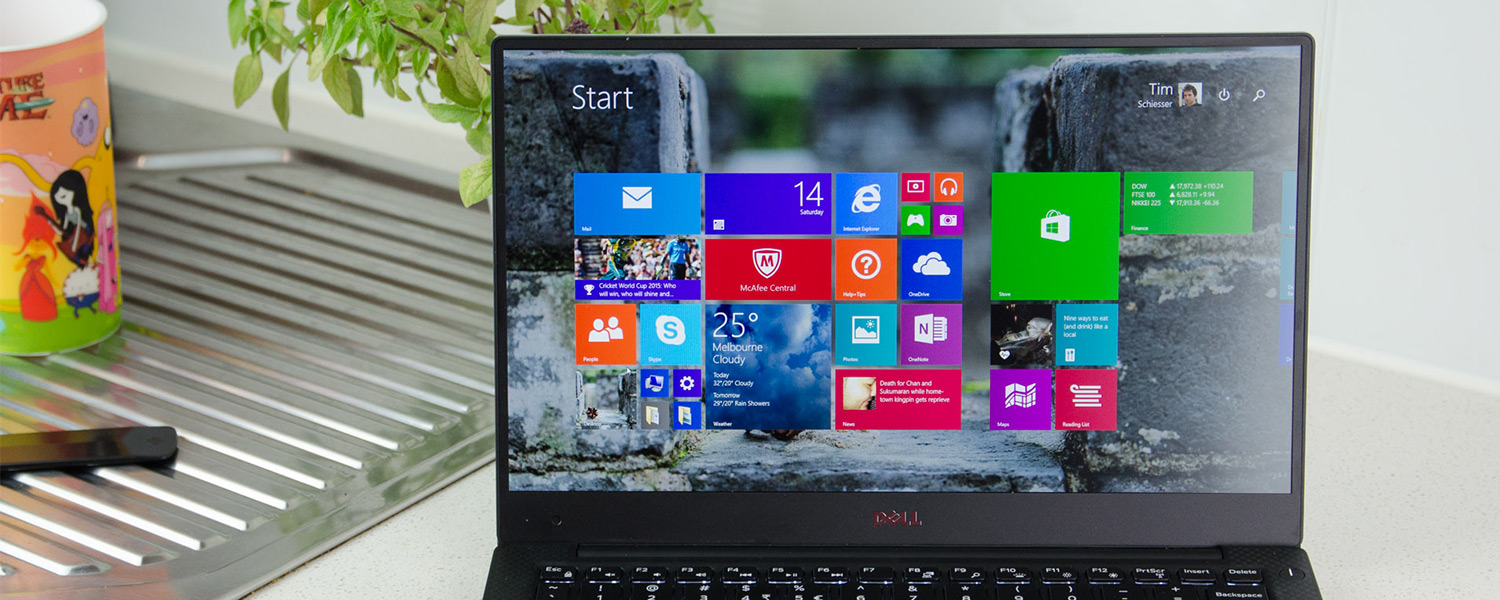The Best Windows Laptop?
I could write this conclusion in just a few lines, it's that easy to summarize my thoughts on the Dell XPS 13: simply put, this is the best Windows laptop you can currently buy. As far as I'm concerned, if you're after an ultraportable 13-inch Windows laptop, this is the only product to consider.
The XPS 13 is good from a multitude of fronts. The design is spectacular, combining a premium and surprisingly tough aluminium lid with an attractive carbon fiber interior that feels great to the touch. The keyboard is pretty decent considering the size of this thin and light laptop that ultimately make it so portable.
But of course, the standout feature of the new XPS 13 is its near bezel-free display. The 13.3-inch 1080p panel is great in terms of quality, and a pleasure to use when surrounded by just 5.2mm of plastic. The thin bezel allows the 13-inch display to sit in a considerably smaller body. If there was ever a laptop that deserved the term 'ultraportable', this is it, call it ultraportable 2.0.
The one and only real complaint I have about the XPS 13 concerns the trackpad, which needs some work to perfect click-and-drag actions, and to fix the terrible right click mechanism. Luckily I believe this is fixable through a software update, which I hope Dell rolls out in the near future. It's also a little disappointing that a touchscreen doesn't come standard and nor is it available with the 1080p display, though on a laptop this isn't a necessary feature.
I wouldn't call the Core i5-5200U CPU inside the XPS 13 groundbreaking or significantly more powerful than the previous generation, but its powerful enough for this class of system while delivering better battery life. I didn't achieve Dell's 15 hours of rated battery life, but I'd call 11-13 hours of general usage pretty impressive, and well above similar Windows laptops.
As the Windows side is essentially a no-contest, the next big challenger for the XPS 13 is the MacBook Air. It's up to you to decide whether you want to use Windows or OS X, though from a hardware side the XPS 13 is ahead. You get a higher-resolution display, similar performance, slightly better battery life, and a more portable form factor. The Air is arguably a more attractive device, but it can't beat the compactness of the XPS 13.
I imagine this hardware lead on the MacBook Air will slim down when Apple launches new Broadwell models and possibly a Retina Air, though for now that's just conjecture.
Dell has priced the XPS 13 pretty competitively considering how good the laptop is. The entry-level model is available for $800, though I'd recommend spending an extra $200 to get 8 GB of RAM and the i5-5200U.
The QHD+ touchscreen model starts at $1300, though as it's $300 extra and features reduced battery life, the standard 1080p model seems like a winner. For those out there with money to burn, the top-end configuration with a Core i7 CPU, QHD+ display, and 256 GB of storage will set you back $1600 which is still pretty decent for a decidedly powerful and very portable machine.
The XPS 13 is a return to form for Dell in a big way, and a laptop I am willing to recommend to nearly everyone. If only I didn't have to return this review unit to Dell.
Pros: Awesome form factor keeps the laptop slim, light, portable and nearly bezel-free. Great use of aluminium and carbon fiber. Intel delivers the goods from a performance perspective. Bright, high quality 1080p display that's upgradeable to QHD+. Excellent battery life.
Cons: Trackpad needs some work. Touchscreen isn't standard.



